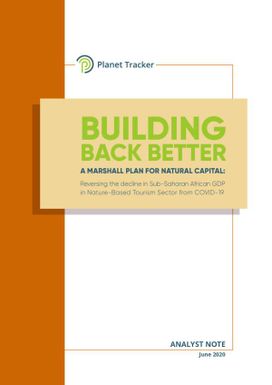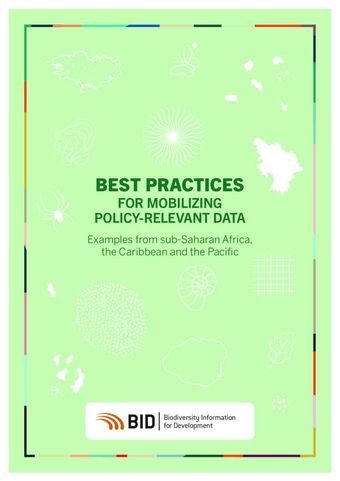Building back better - A Marshall plan for Natural Capital: Reversing the decline in Sub-Saharan African GDP in Nature-based Tourism sector from COVID-19
- Description:
- A green infrastructure strategy can provide necessary skills and wages to draw down our environmental deficit, through replanting mangroves and watersheds, removing invasive species, upgrading and rewilding our conservation areas, building fire breaks and restoring damaged areas by wildfire in natural forests, restoring shorelines, rebuilding tourism infrastructure to minimize environmental impacts and installing better waste waste management and energy systems.
- Display date:
- 2020
- Collections:
- Secretariat of the Pacific Regional Environment Programme (SPREP)
- Publisher:
- International Union for Nature Conservation (IUCN)
- Content partner:
- Secretariat of the Pacific Regional Environment Programme (SPREP)
- Availability:
- Not specified
-
Copyright status: All rights reservedFind out more about what you are able to do with this itemThis item is all rights reserved, with means you'll have to get permission from Secretariat of the Pacific Regional Environment Programme (SPREP) before using it. For more information, please see our use and reuse page.What can I do with this item?Non-infringing useNZ copyright law does not prevent every use of a copyright work, and this item may be hosted by an international institute or organisation. You should consider what you can and cannot do with a copyright work.No sharingYou may not copy and/or share this item with others without further permission. This includes posting it on your blog, using it in a presentation, or any other public use.No modifyingYou are not allowed to adapt or remix this item into any other works.No commercial useYou may not use this item commercially.
Related items
Welcome and warm Pasifik greetings
The information on this site has been gathered from our content partners.
The names, terms, and labels that we present on the site may contain images or voices of deceased persons and may also reflect the bias, norms, and perspective of the period of time in which they were created. We accept that these may not be appropriate today.
If you have any concerns or questions about an item, please contact us.


